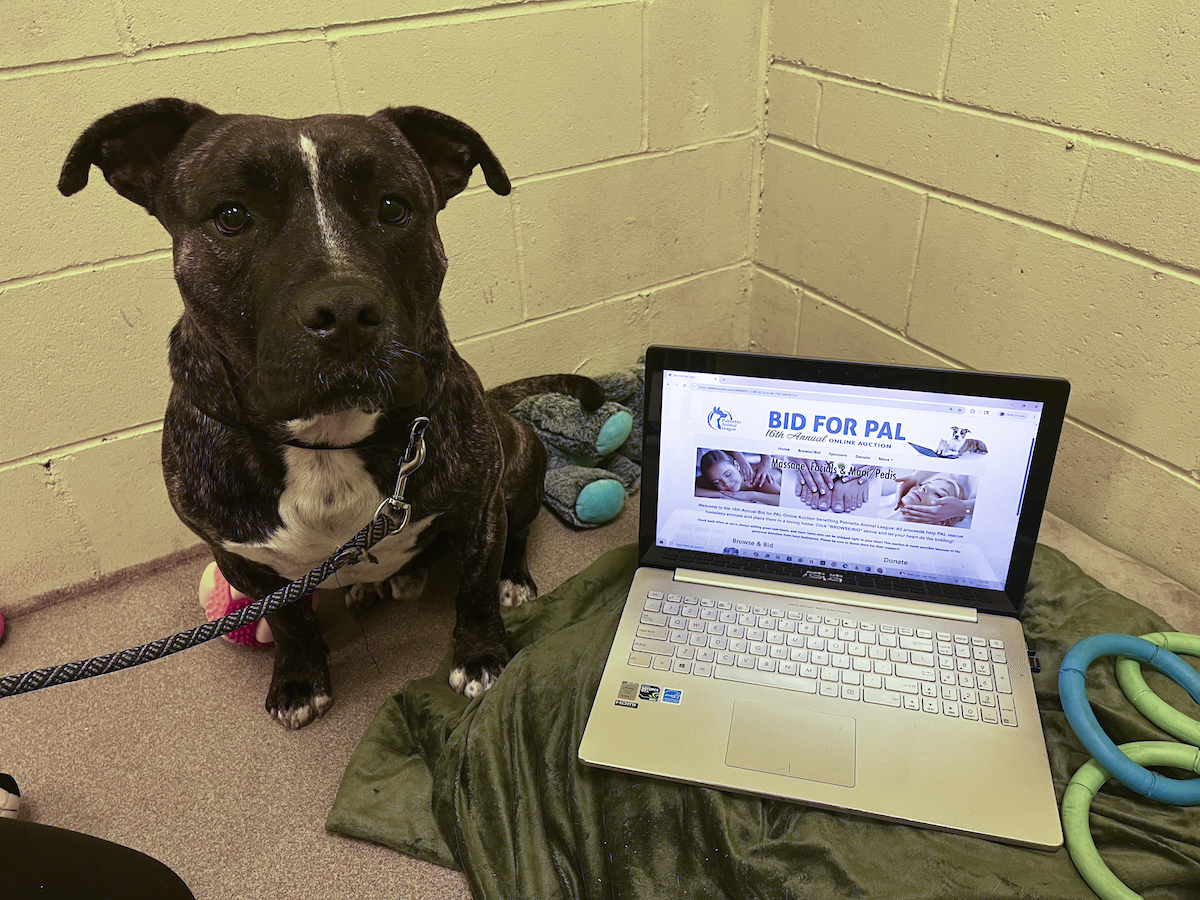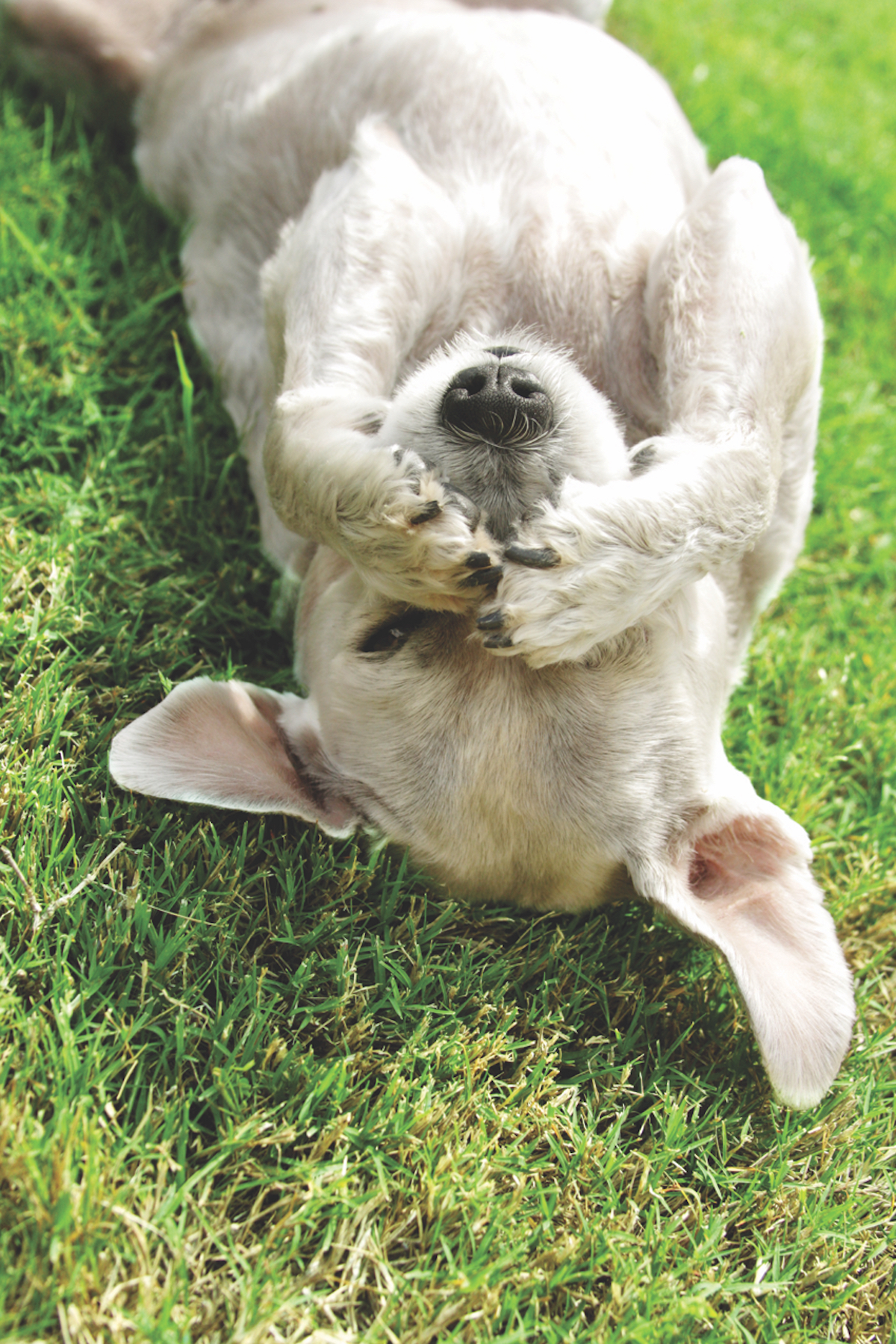Friends don’t let friends have litters.
By Tracie Korol
Health. According to the Humane Society of the United States (HSUS), 6 to 8 million dogs (and cats) enter shelters each year, and at least half of them are euthanized. The group calculates that a fertile dog can produce two litters of 6-10 pups in a year. If you are up to the math, that means that the female and her offspring can theoretically produce 67,000 unwanted dogs over a span of six years. If you take a casual drive around Beaufort County, you might assume that most of them live here.
While I would like to see every pet neutered or spayed and would like to create a case that it is THE only right thing to do, I would be remiss if I did not share the entire picture of spay/neuter effects on a dog’s health. It is a controversial topic with veterinarians and dog professionals.
On the Let’s Get Neutered! front, any ailment associated with an active reproductive tract will be eliminated. That means that pyometra (infection of the uterus) and testicular cancer does not occur, as the parts affected are just not there. Protastatic cancer is greatly reduced, as is mammary cancer. In fact, intact female dogs have seven times the risk of developing mammary tumors than do females spayed early in life.
However, on the other side, in both males and females, very early spay/neuter procedures may increase the risk of osteosarcoma (bone cancer). Very early means three months and under. This is a cancer found in medium/large and large breeds. A 2002 study at the University of Purdue of 683 Rottweilers — a breed known to be at high risk for osteosarcoma — concluded that the risk for bone cancer was significantly influenced by the dogs’ ages at sterilization. For an at-risk breed, postponing spay/neuter until the second year was suggested.
In females there is a 4-20% increase in what is colloquially termed “spay incontinence” or more colloquially, the dog that dribbles. Studies show that this occurs in dogs spayed early, from 6-14 weeks, in what is termed pediatric neutering. Fortunately, this is a condition easily controlled by homeopathic remedy.
So, is this an argument NOT to spay or neuter your pet? For those of us who have spent time in animal shelters and who have witnessed the misery of abandoned dogs, let alone the euthanization procedure, there is absolutely no reason not to neuter your pet. However, if you are concerned about the risks of potential medical complications, you may wish to wait until your dog is at least 6 months old.
As for the surgery itself, the medical benefits of having your dog spayed or neutered far outweigh the slight risk involved with undergoing anesthesia. Modern veterinary procedures employ equipment that monitors heart and respiratory rates during surgery, ensuring the patient is doing just fine. If you are concerned, you can always consult your vet, but remember for docs, this is a routine operation.
Normally, your vet will tell you to withhold food and water from your dog for 12 hours before the operation. Most dogs go home the same day, but sometimes your vet may prefer to keep a pet in slightly longer if they are still very sleepy.
After the operation, dogs should be confined to the house for a few days, kept quiet and prevented from jumping, or biting at their sutures. Your vet will discuss post-operative care, including when the sutures will be removed. Recovery time depends on the animal. At one time, I had a pair of male cockers. Immediately post-surgery, P.Bear was ready to wrangle and run. Nothing was going to slow him down. His brother, Temujin, assumed a mournful position on the couch and moaned for a day. I fixed him some soup and held his head. What a con artist!
Next week: Spay/neuter and common sense
BowWOW! Is a production of Tracie Korol and wholeDog.
She is a holistic behavior coach, a canine massage therapist (CCMT), herbalist, and canine homeopath. Want more information? Have a question? Send a note to Tracie at letstalk@wholedog.biz or visit www.wholedog.biz.






